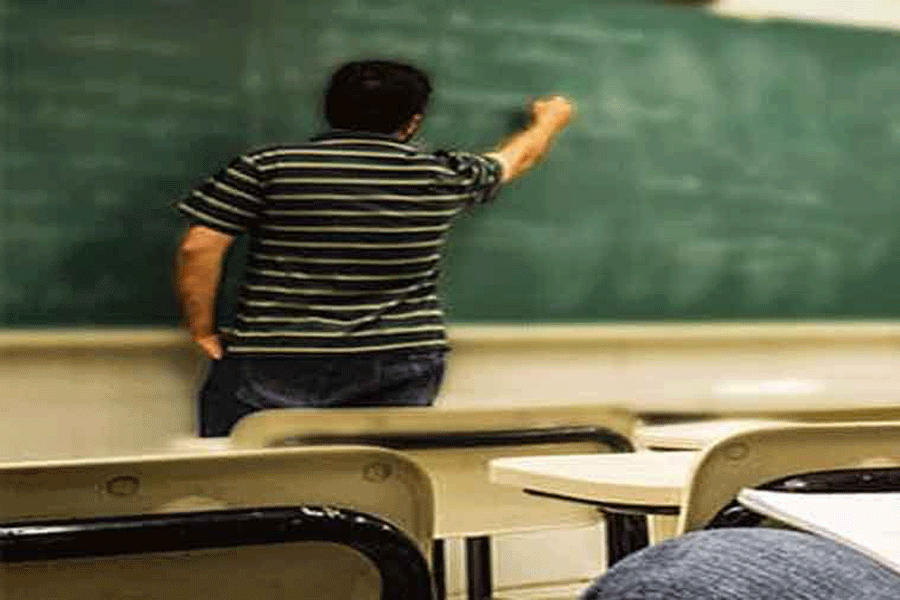Teachers need handholding because the present generation of teachers has not undergone “experiential learning” in their lifetime, the chief executive and secretary of the Council for Indian School Certificate Examinations (CISCE) told school principals at a recent programme.
The importance of experiential learning or learning by doing has to be communicated to teachers, for which “capacity building” is important, Joseph Emmanuel said.
Several school heads who attended the session said teachers need to upgrade themselves according to the needs of the time, instead of being resistant to change.
Many of them said they have been sending their teachers to training sessions organised by the council and various platforms.
The council has already introduced application-based questions in ICSE (Class X) and ISC (Class XII) exams, which require both teachers and children to change their approach from rote learning to applying their knowledge.
Over the years, there has been a certain plateauing in the teaching, which has to change, a school principal said.
“Our teachers need handholding because the present generation of teachers has not undergone experiential learning in their lifetime. They never got an opportunity. So to tell the importance of experiential learning, learning by doing, learning through various activities, hands-on experience is important and so the teachers’ capacity building is important,” Emmanuel said.
The council has made 50 hours of teachers’ training in an academic year mandatory for all principals and teachers.
It will be a combination of online and offline training, Emmanuel said.
The training will not just be subject-oriented but will include other aspects, too.
“There will be programmes to improve the effectiveness of teaching-learning, better classroom management, how to address the emotional needs of the children and all those behavioural aspects will be covered under the training programme,” said Emmanuel.
Several school principals said there has to be a change in the schools’ approach, too.
“We have to change our stance from being a teaching school to a learning school and there has to be a trickle-down effect, from the head of the school to the student,” said Seema Sapru, principal, The Heritage School.
“Teachers need to upgrade themselves in the changing times and not be resistant to change,” she said.
Sapru said the role of the teacher has changed to that of being a facilitator and the teacher is often not the only source of knowledge for the student.
“There is a lot of information available on the Internet and teachers have to know how to help students sift that information. A teacher cannot just tell the students to research because they will not be discerning enough to sieve through 500 links. That is the job of the teacher,” said Sapru.
The upgrade has to start right from the position of the principal, said Jessica Gomes Surana, principal, Loreto Day School, Elliot Road.
“Not many teachers have upgraded themselves from the time they did their BEd or teachers’ training. There is a sort of plateauing that has happened in the teaching,” said Gomes Surana.
She said that with the introduction of competency-based questions, the thrust has to be on preparing children accordingly.
“The teacher and the student cannot move in parallel lines. There has to be a merging of the two,” said Gomes Surana.
Rodney Borneo, principal of St Augustine’s Day School, Shyamnagar, said that if teachers attend the training, they will be familiar with the changes and be able to disseminate that among students.
“There is a new way of preparing question papers and preparing students. Teachers require a refresher course and the best one would be that provided by the council to familiarise everyone with the changes,” he said.











